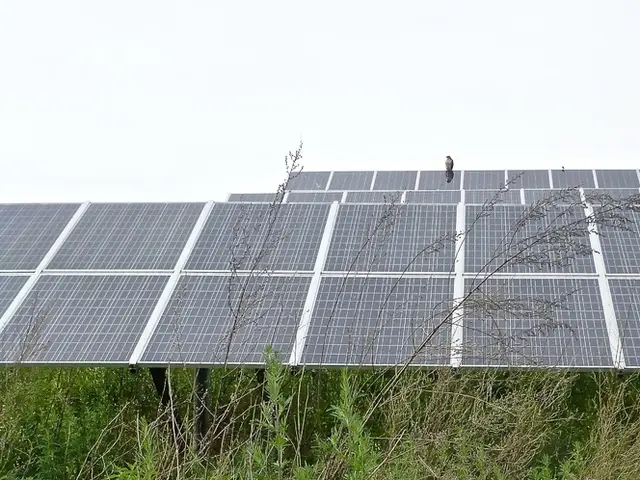CERN and F4E unite in pursuit of progressing fusion energy research
In a significant development, CERN, the European Organization for Nuclear Research, and Fusion for Energy (F4E) have signed a collaboration agreement to accelerate progress in frontier technologies. This partnership, which builds upon an initial collaboration that began in 2014, aims to strengthen Europe's position in the global race towards fusion energy.
Marc Lachaise, Director of F4E, stated that the cooperation agreement will bolster F4E's capacity to deliver and address complex questions in fusion energy and particle physics. Mike Lamont, CERN's Director for Accelerators and Technology, echoed this sentiment, commenting that the partnership reinforces a partnership built on mutual interests and long-term commitment.
The collaboration will focus on engineering and construction of large-scale scientific instruments, with a particular emphasis on high-temperature superconducting magnets, a key component in fusion energy research. The partnership will also involve R&D in physics and engineering, with applications beyond fundamental science.
Knowledge transfer between research institutes and industry is part of the partnership's scope. The Helmholtz-Zentrum Dresden-Rossendorf (HZDR) and other research institutions, including the Technical University of Dresden, will collaborate under the newly signed framework agreement to accelerate progress in high-temperature superconductor magnets and long-term fusion energy tracking.
The partnership represents a potential turning point in humanity's quest for limitless, carbon-free power. Fusion energy, often described as the 'holy grail' of clean power, replicates the process that fuels the Sun by combining light atomic nuclei to form heavier elements while releasing vast amounts of energy. Unlike nuclear fission, which splits atoms and produces long-lived radioactive waste, fusion offers the promise of abundant, safe, and virtually waste-free energy.
Projects like ITER in France, supported by F4E, aim to demonstrate that controlled fusion can be scaled into a practical, sustainable energy source for the future. The collaboration between CERN and F4E will also include testing and validation of advanced materials, systems, and components.
In addition to scientific development, the partnership will also cover project management and oversight of complex scientific initiatives. Harnessing fusion requires extreme conditions - temperatures hotter than the Sun's core and powerful magnetic fields to confine plasma. This collaboration is expected to bring together experts in accelerator physics, magnet design, and technology transfer to tackle these challenges.
The scope of the partnership has now widened significantly, opening the door to ambitious joint projects in engineering, testing, and scientific development. This collaboration is a significant step forward in the pursuit of a sustainable, carbon-free energy future.
Read also:
- Industrial robots in China are being installed at a faster rate than in both the United States and the European Union, as the global market for these robots faces a downturn.
- EAFO Research Uncovers Crucial Elements in Electric Vehicle Adoption within the EU
- Ramping Up: America's Electric Vehicle Sector's Swift Expansion
- SAFRA's First Hydrogen Conversion Kit Set for Official Approval Imminently








